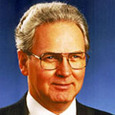Put Power in the Voice-Mail Messages You Receive
You can add to your Time Management skills and techniques with better ways to use your voice-mail/answering machine. You can better capture the power it provides you and your callers.
The problem begins with the "greeting" message you leave for callers. Your message probably asks callers to leave their name and phone number; and it ends by stating you will call them back "as soon as possible" (ASAP). Therein, lays your problem.
Think of your "greeting message" on your v-mail/answering machine as your electronic professional secretary or administrative assistant. Make it a professional message, one that provides callers relevant information and requests the same from them.
Record "greeting messages" that state who the callers have reached and what day(s) your message is for; ask callers to state their phone numbers twice and, then, state the purpose of their calls. Avoid playing "telephone-tag" by stating times when you can return calls, and ask callers for the best times for you to return calls to them.
Always avoid using the words, "I'll call you back as soon as possible." Your ASAP statement is nearly useless because, typically, your callers have no idea what your ASAP means. Does your ASAP statement mean you will call back after you return from a two minute trip away from your office, a two hour meeting, a two day business trip or a two week vacation? Then, too, are you in the first or second hour of a two hour meeting, first or second day of a two day business trip or first or last day of a two week vacation? As you see, your ASAP adds nothing but uncertainty to your "greeting message"; it does not help your callers resolve the conflict between your availability and the urgency or deadline for their talking to you, or someone else in your company.
Change your "greeting message" at least daily; make it the first thing you do. State the day of the week and the date, so your callers know your message is current. If what you do day-in and day-out is receive and place phone calls, changes in your availability throughout the day may require changing your "greeting message" several times each day. Based on the nature of your business, your message may need, also, to state the person and number to call in case you're not being available creates an emergency or crises for you and/or your callers. Here's the point; make your "greeting message" do for you what a professional secretary or administrative assistant would do if answering your phone. Your callers deserve nothing less, nor do you and your company.
For illustration, here are two examples of messages used this month:
Hello, this is Dr. Larry Baker. This message is for Wednesday, Thursday and Friday - November 1st, 2nd and 3rd. I'll be out of the office those days. Please leave your name, state your phone number twice, leave a detailed message and indicate a couple of times on Monday, the 6th, that would be good to return your call. I look forward to getting back to you.
Hello, this is DR. Larry Baker. This message is for Friday, November 10th; I am in the office today, but have stepped out for a few minutes; and I will be out to lunch from 12:00 to 1:30 P.M. please leave your name, state your phone number twice, leave a detailed message and indicate a couple of times to return your call. I look forward to getting back to you.
These messages are longer than you normally hear; but, don't you know more about your options? Isn't it better than when you are asked only to leave your name and phone number and are given the typical ASAP message? Caution: it is not wise to leave "greeting messages" on your home voice-mail/answering machine that describe how long you will be away.
Short-sighted callers may complain about your longer "greeting message"; but, most callers will appreciate knowing your availability. And, if the person you called believed it necessary for your mutual business interests for you to know who to call in an emergency, you would have been given contact information.
It is not a sin to have poor telephone skills and habits,
but it is to keep them.
Time Management tips on improving the use of your voice-mail/answering machine are among the hundreds of self improvement tips available from Dr. Larry Baker. To assess your current Time Management skills and habits and improve your opportunities for larger salary increases, promotions and greater success, go to:
http://www.manage-time-better.com
For nearly 30 years, Dr. Larry Baker has been an internationally recognized consultant, coach, speaker, author and publisher. His articles, books, booklets, tape albums, movie scripts and personal performance assessment surveys cover many Time Management topics, including strategic, operational, performance planning, as well as organizational design and structure.

Post new comment
Please Register or Login to post new comment.